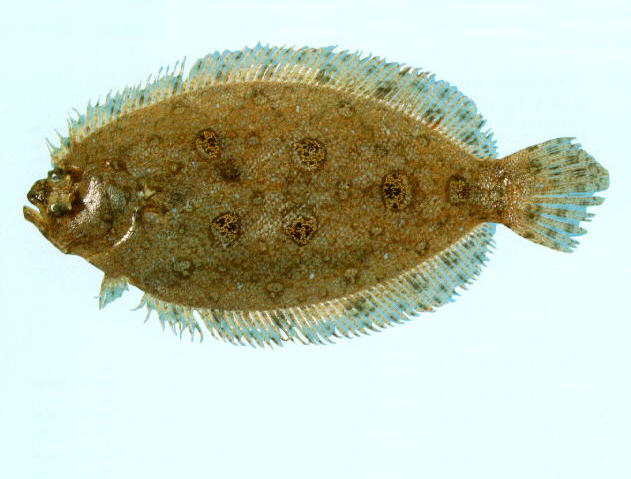| Paralichthyidae (Large-tooth flounders) |
| 25 cm SL (male/unsexed) |
|
demersal; marine; depth range 13 - 78 m |
| Indo-West Pacific: Indo-Australian Archipelago. |
|
Dorsal spines (total): 0-0; Dorsal soft rays (total): 67-72; Anal spines: 0-0; Anal soft rays: 51-55. Body brownish, 2 double or tripe ocelli above and below lateral line and 1 on posterior third of straight section of lateral line. Many dark spots and rings scattered on body and median fins. Pectoral fin on ocular side with 12-13 rays. Pelvic fins short based, subequal and sub symmetrical in position, posterior 3-4 rays branched. |
| Inhabits muddy and sandy bottoms (Ref. 9774). Feeds on small benthic animals (Ref. 9774). Caught mainly with bottom prawn trawls (Ref. 9774). |
|
Least Concern (LC); Date assessed: 13 November 2019 Ref. (130435)
|
| harmless |
Source and more info: www.fishbase.org. For personal, classroom, and other internal use only. Not for publication.

